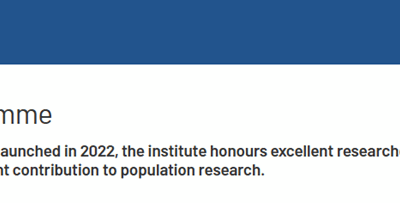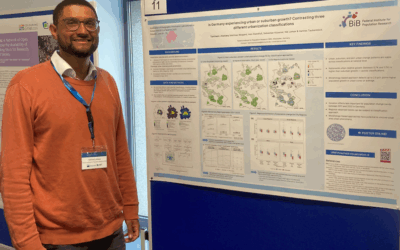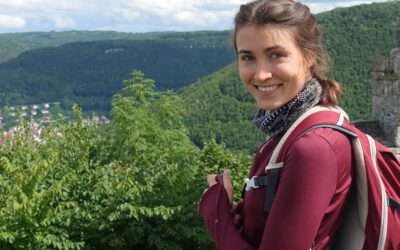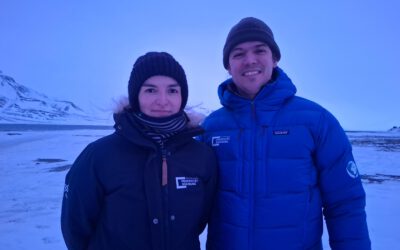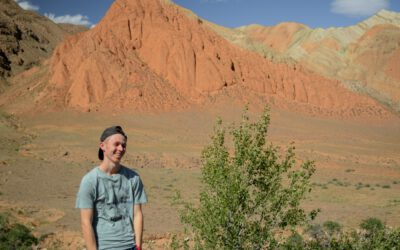Irregular series about our staff – today PhD candidate Nicolas Kraff
Nicolas Johannes Kraff is a PhD student at the Institute of Geography and Geology at University of Würzburg and affiliated with the Earth Observation Center (EOC) of DLR where he writes his dissertation under the supervision of Prof. Dr. Hannes Taubenböck (Chair of Global Urbanization and Remote Sensing). Nicolas has studied Human Geography, Remote Sensing and Cartography at the University of Trier and focused spatial development/planning, aid and development geography which represent his current research fields.
Nicolas investigates (urban) morphology in relation to poverty areas using quantitative and qualitative methods. With his research, he aims to respond to the international demand (e.g., UN SDGs) to generate more systemized geodata to understand scientific backgrounds of deprived areas. In his approach, he categorizes the physical morphology of poor urban areas on a global scale. His PhD research is about the temporal dynamics of the physical structures and settlement patterns of such shelters, housing forms of poverty specifically in Europe, and the capabilities of remote sensing to capture these complex structures. The work bases on prior collaborations with Hannes Taubenböck about physical delineations of slums in Mumbai ( https://link.springer.com/article/10.1007/s10901-013-9333-x ) and a global morphologic poverty area categorization ( https://www.sciencedirect.com/science/article/pii/S0143622817309955 ).
In his current PhD research, Nicolas uses VHR optical satellite imagery to derive geodata on the level of single buildings by obtaining their footprints. He documents differences in spatial growth or decline and the related changing spatial patterns comparing the Global South to the Global North ( https://www.sciencedirect.com/science/article/pii/S0264275120312531 ). He adds descriptive statistics based on the predominantly used manual visual image interpretation, a classic method established in the 1980’s. Despite its cognitive mapping advantages, Nicolas empirically questions its commonly known high mapping accuracies ( https://ieeexplore.ieee.org/document/9146616 ). Furthermore, as the Global South and the Global North are not evenly explored in the field of poverty areas, Nicolas has set up a new morphological categorization of poor areas across Europe and revealed potential social geographic trend-causes to explain the high range of findings ( https://www.sciencedirect.com/science/article/pii/S0143622822001916 ). He believes that poverty in context of the contemporary so-called ‘social question’ is strongly linked to global crises as e.g., climate change as well as geopolitical outcomes. In his mind future studies have to focus poverty in the frame of multidimensional research where earth observation needs to meet a local perspective.
Nicolas collected his first professional experience as an intern at the United Nations Environment Programme (UNEP) in Nairobi and the Federal Office of Civil Protection and Disaster Assistance in Bonn, where he worked with mapping methods and empirical interviews. He is currently working at the Technical University of Darmstadt where he investigates the temporal expansion of slums worldwide with regard to infrastructural backgrounds (project led by Dr. John Friesen) and is parallel finishing his PhD at DLR and the University of Würzburg.



